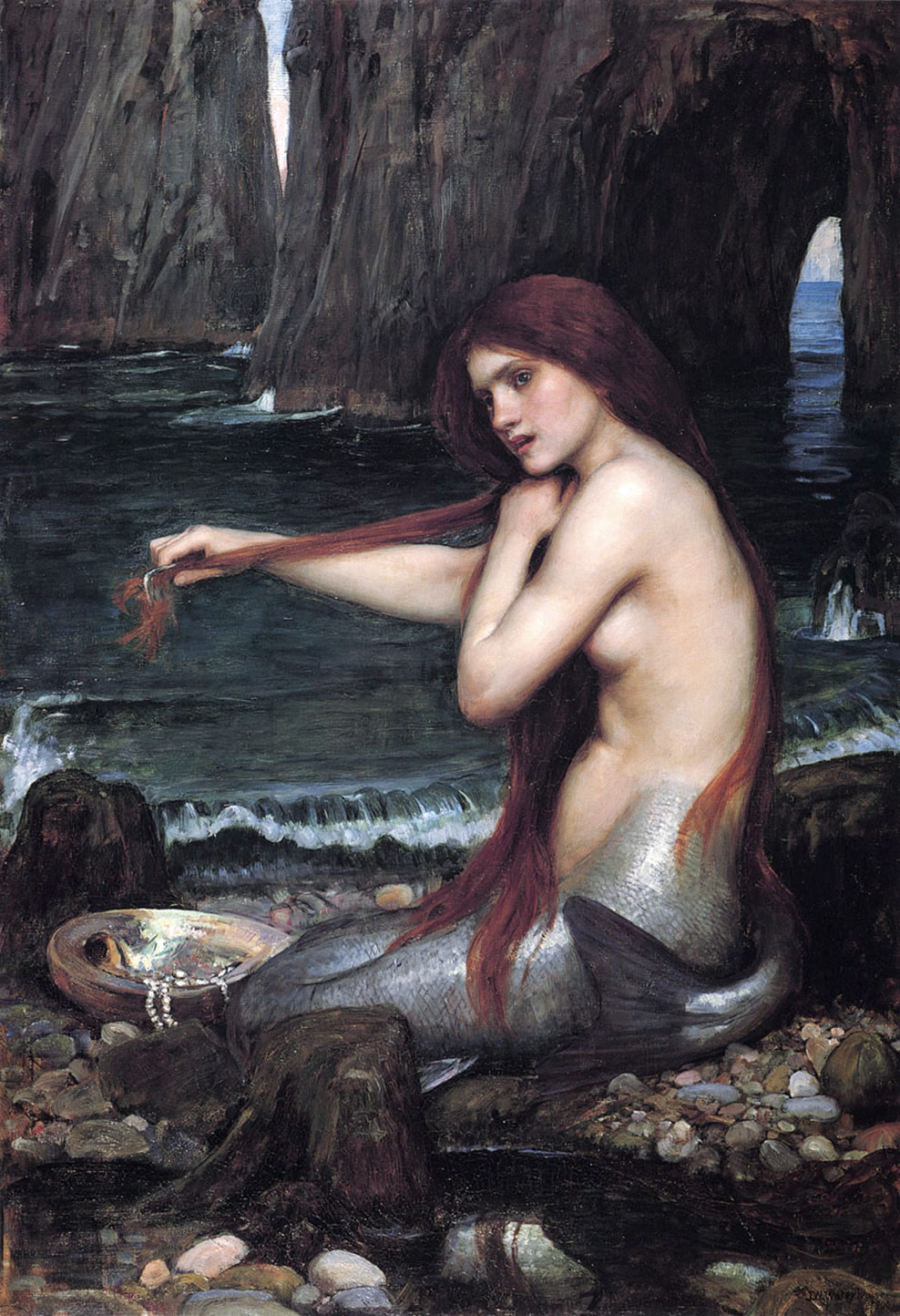You are alone on an uninhabited island. Which mermaid would you choose as your companion? Classic mermaid – top-half woman, bottom-half fish – or inverted mermaid – top-half fish, bottom-half woman?

In 1934, abstract artist René Magritte painted Collective Invention – a play on the idea of a mermaid. This mermaid has the lower-body of a woman and the upper-body of a fish. Despite having beautiful, functional legs, the “mermaid” is gazing expressionless and lying on its side. You would think that a fish with legs would be using them, but clearly this creature is too foolish, or is possibly asphyxiating as its gills attempt to respire in vain. As opposed to the normal model of human-fish creatures, this one has gained the transportation and sex-organs that flummox the sea-faring men whom they tempt. What the creature lacks is the personality, and inner/outer beauty of the traditional sea-temptress. One misogynist, who clearly did not think the choice through, called this “a practical man’s mermaid”.
Perhaps the question of the two mermaids is what part of a woman a man considers more important.
So which would you choose? Go.










